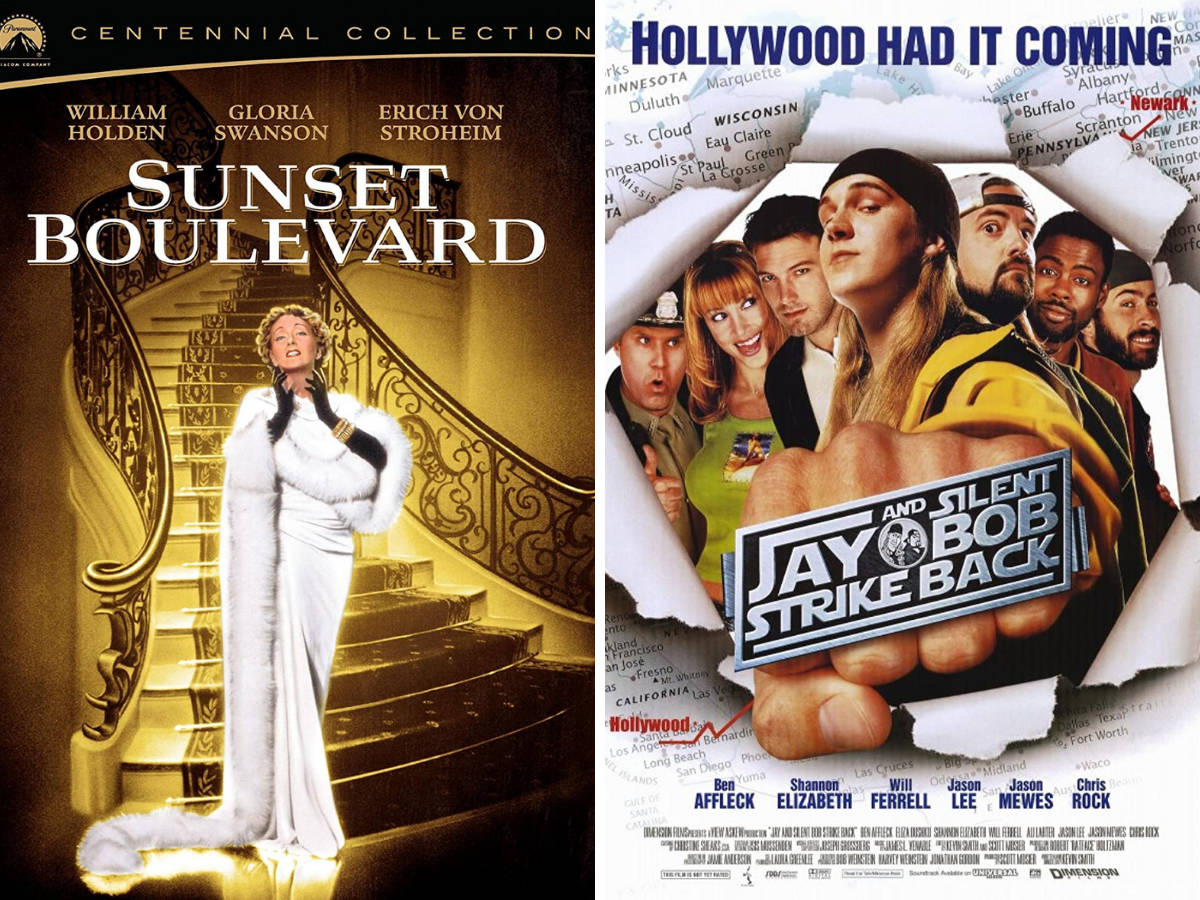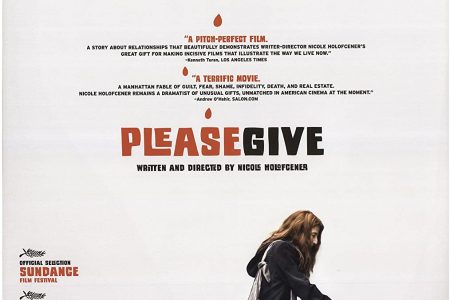As someone who enjoys watching films perhaps more than average, I enjoy films that love films. This can be a film that has nods/homages/steals from other films, little Easter eggs dotted throughout, to films that are about films and film-making. Some people think it far too incestuous, a cinematic navel-gazing that disappears up its own rear end, and therefore only of interest to other people in the business of making films. Who wants to watch a movie full of in-jokes and cameos and references to other films that can only be understood by people who watch too many films?
Well, I do. Among the many things that can contribute to a good film, one of them is writing what you know. When the screenwriter knows the story so intimately, it allows the film to breathe, and the film can be about its subtext, instead of the surface. Being about the film industry, in which presumably the screenwriter is involved (and the director who films it, as well as the actors who play the parts therein), there is a natural understanding that comes across, from the years of experience, as well as an attention to detail that helps to create a believable film.
The Bad and The Beautiful is a film about films that doesn’t use the in-joke/referencing mentioned but is very much about people making films. It uses a flashback structure to examine the affect of Kirk Douglas’ once-powerful producer on three former friends (a successful director, a successful screenwriter and a successful actress) who subsequently became stars, even though they ended up hating him for the way he treated them, but come to realise that it was because of this hardship they were able to succeed. It uses the film industry to examine relationships and the paths people take and their reasons. It is a very enjoyable film that gives you a sense of how things were done in the bygone age of Hollywood.
Another black and white film about the old days of Hollywood is Sunset Boulevard. One of the many great films made by Billy Wilder, it starts out with the corpse of a screenwriter (William Holden) in a swimming pool (which is one of the great beginnings of a film ever) and relates in flashback of how he comes to be involved with Norma Desmond (Gloria Swanson), a star of the silent era who never made the transition to talkies but doesn’t realise how detached from reality she has become. This film does involve cameos (Buster Keaton, Cecil B DeMille) and in-jokes (DeMille is actually filming a genuine film when Desmond comes to visit him and calls her by his nickname for Swanson; Erich von Stroheim, who plays the butler who had formerly been a famous director, had been a famous director [of a film that starred Swanson that is shown in the film] who now only got work as an actor) but it is also a great study in how fame affects people. And it has great dialogue, apart from the famous lines …
Living in Oblivion is about the trials and tribulations of making an independent movie in modern times. Tom DiCillo, the writer-director, uses his previous experiences to portray an up-and-coming writer/director trying to get his movie made, with an actress with buzz, and an actor who is a big star who is doing everyone a favour by being in the low-budget film (and who was most definitely not based on Brad Pitt, with whom DiCillo had just worked on Johnny Suede, definitely not). It is an inside look at the indie film world, but also a look at people and their relationships in an unusual setting, with plenty of humour and hysteria and dwarfs being used in dream sequences. And if you ever decide you want to make a film, you should watch this film and think again.
The Player, adapted from a novel, is perhaps the most notorious film about films, especially with its huge roster of big stars playing themselves in small cameos, filled with snipes at Hollywood (Altman had never been a particular fan of the system, and Hollywood felt likewise) as well as sly in-jokes, such as the 15-minute opening scene, which is all done in a single continuous take, in homage to Orson Welles’ A Touch of Evil, which it mentions specifically in the scene. The film is about what a man will do when in a dark and desperate situation, and the ramifications of the actions, more than Hollywood itself, but there are plenty of inside details and jokes that let you feel that what you are seeing is a documentary rather than fiction.
Other films use film-making as a background for drama. Shadow of the Vampire is a fictional account of the making of F.W. Murnau’s Nosferatu, with the intriguing idea that the method actor playing the lead actually became a vampire for the film. However, it is a look at the obsession of an artist in getting his film made. Ed Wood examines the world of the most notorious worst director, but is about people with dreams, and how we shouldn’t dismiss the dreamers. Barton Fink is the film about a writer with writer’s block, a film the Coen brothers notoriously wrote while suffering writer’s block on Millers Crossing. Although it mocks the Hollywood of the late 1940s, it a portrait of despair and alienation, and is both funny and scary at the same time.
Films about film-making are a source for comedy. Singin’ in the Rain is a wonderfully entertaining musical (and how many times can that be applied to films?) that homages and pastiches old Hollywood musicals and the beginning of talkies. Get Shorty parodies the world of Hollywood and the B-movie directors, by comparing them to the mob, with John Travolta’s Chilli Palmer making his way into the film world using his gangster methods. Jay & Silent Bob Strike Back is full of in-jokes and digs at the modern world of film, from digs at the studio that produces the film, to the hilarity of Ben Affleck and Matt Damon sending themselves up in a fake sequel to Good Will Hunting, called ‘Hunting Season’ (‘Lion Face Lemon Face’ still makes me laugh hysterically). All of this isn’t surprising considering it was made by Kevin Smith, a big film-geek with a love of movies, who constantly references other films in his own. Hollywood may be an easy target, but if the jokes are this good, it doesn’t really matter.
The films about film-making idea has now entered the television world, as Entourage continues to bring us cameos, film references and in-jokes to the masses, so one has to wonder how much more exploring of the notion can be done at the cinematic level. However, if it continues to produce enjoyable films around the conceit, I’m sure that that this small genre will not fade away.




